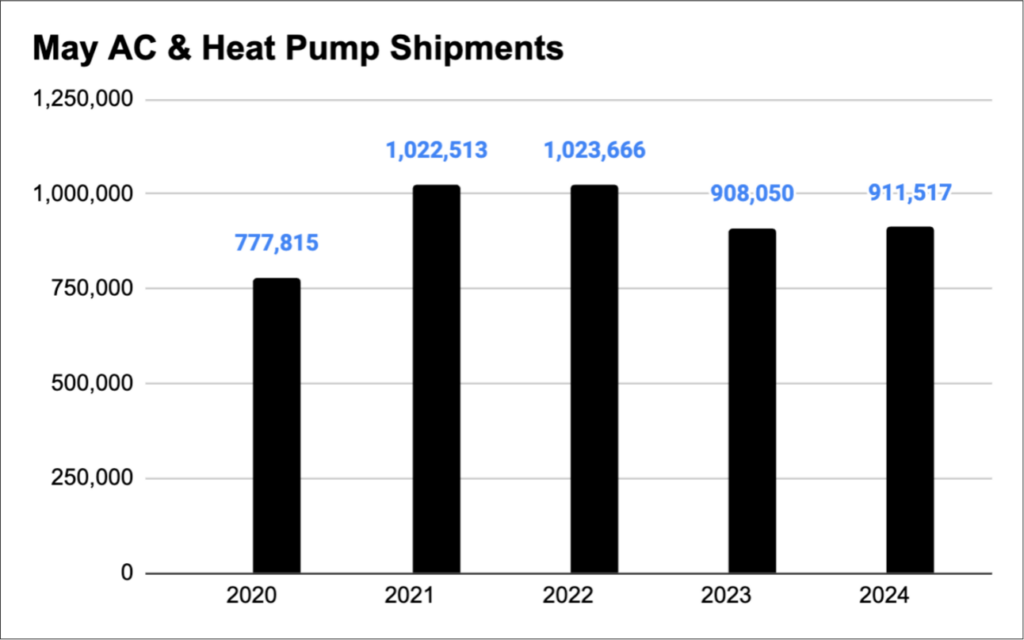Homes are getting smarter. Here’s what it means for contractors

Image: Alexander Linn, Shipshape
❝
The market is crowded with lots of competition. As a result, contractors are increasingly looking at how they can use technology to secure their customers and get more repeat purchases.
Alexander Linn is the founder and CEO of Shipshape, a software startup enabling homeowners to proactively monitor their home’s equipment using sensors and connect with contractors in real-time.
We talked about the state of “smart homes,” how smart home technology can help contractors secure long-term customers, why it matters, and more.
“Smart home” seems like a buzzword. Can you get me up to speed on what’s happened in the space over the past 5-10 years?
Where we’ve been so far is like the early days of the personal computer. We’ve connected lots of home products [that are] mostly remote controlled: Lights, speakers, thermostats, etc.
The “smart home” has been bundled with home security and internet; utilities and insurance companies realized the value and launched programs to drive adoption.
Yet, for many years now, contractors have installed smart products, but haven’t gotten much value in return. No one’s delivered a smart home that unlocks the true value this technology will [eventually] create.
How do you describe where things are at now?
Most homeowners have a few smart home products, but now they want real value; they want to save money on insurance and energy. As a result, new software and services are emerging.
Thermostats, sensors, and smart appliances send alerts that are starting to connect homeowners to contractors. For example, Google Nest sends an alert when your system is broken, with an option to find a contractor on Handy to complete the repair.
Meanwhile, the most advanced contractors are thinking about how to use data from smart homes to improve the customer experience and secure repeat customers.
What do you mean by that?
Contractors have hit a tipping point in using software to run their businesses with CRMs, they’ve made great strides in measuring the results of their marketing, and now, they’re in a good position to use new data to enhance their businesses.
When a homeowner goes to get another project done, there’s a good chance they’re going to search for a contractor without remembering who did the work last time. The market is crowded with lots of competition. As a result, contractors are increasingly looking at how they can use technology to secure their customers and get more repeat purchases.
So how do you think that plays out, specifically, down the road?
We’ll see a switch to “connected customers” who buy proactively and repeatedly from their contractors. [They’ll be] willing to pay more for value, like comfort, convenience, and technology features that make your home feel like an iPhone rather than a cheap smartphone.
For example, contactless service visits using smart locks, and alerts for water, humidity, and temperature risks that result in proactive leads for contractors.
Our idea is that the home will become more proactive. Your car rarely breaks down unexpectedly anymore — certainly not like it did 50 years ago. There’s a check engine light that goes off, a service center nearby, and you know what things will cost, you can get a Carfax report, etc. That’s all very close [when it comes] to the home.
❝
Contractors are wasting money on expensive customer acquisition, and homeowners are wasting money because they don’t deal with their maintenance until something falls through the roof.
Can you elaborate on the “proactive” bit?
Homeowners will be able to make better decisions when making improvements and repairs to their homes.
Newly available data can provide a more complete and accurate understanding of the costs associated with those decisions, including the expected ongoing maintenance and energy consumption, risk of damage, cost to finance, and available subsidies.
And, in the not-too-distant future, you’ll be able to understand the impact on your home’s value. Is my home worth more because it’s more efficient?
In your opinion, what needs to happen for that future to become a reality?
I think it comes from economic alignment and long-term thinking. It’s possible to connect customers with a win-win approach that drives growth and profitability over the long term, even though there’s an upfront investment [needed] to learn and sell new technology.
Can you give me a little color on Shipshape?
We make it easy for contractors to stay connected to their customers. We offer them an app to give homeowners to manage their maintenance, and packages of smart home devices and sensors to get data that leads to more proactive decisions.
[Contractors] are also using Shipshape to connect to their past customers, secure them [for the] long-term, and capture more business from them.
How do you think the contractor’s role will change in the future?
[I think] contractors will spend more time as a trusted advisor to the customer, providing consultative help — high-quality work will drive more future sales than big marketing budgets.
Why does all of this matter?
There’s a lot of waste in this market: Homeowners in the U.S. spend over $1 trillion every year with contractors, insurance, utilities, and manufactured products, and they waste about 30% of that. And that’s across both sides: Contractors are wasting money on expensive customer acquisition, and homeowners are wasting money because they don’t deal with their maintenance until something falls through the roof.
There’s a great deal of market pressure to solve this problem right now. And as a society, we need to. There’s a shortage of skilled labor, and homeowners are struggling to afford their homes. We can’t afford to waste so much of our limited resources.
📬 Get our stories in your inbox
Keep reading
Advocating for the HVAC industry in D.C. with Chris Czarnecki
Notes on HVAC legislation, the IRA, and what else is bubbling in D.C.
May AC, Heat Pump shipments up slightly year-over-year
Over 911,000 combined air conditioners and heat pumps were shipped in May, up 0.4% year-over-year
Bluon launches “ChatGPT for HVAC techs”
September 4, 2023


